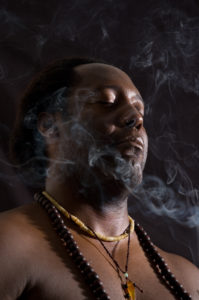
Paganism is sometimes mistakenly seen as a singular religion, but it encompasses a broad variety of traditions and a diverse range of spiritual paths. The last few decades have seen an increase in black people who leave behind the beliefs in which they were raised to embrace some form of pagan practice. These individual black pagans enjoy the benefits of discovering a meaningful spirituality that resonates with them while facing a few unique challenges at the same time.
“I Thought I Was the Only One”
In the United States, pagans from every walk of life struggle with the question of whether to disclose their faiths to others in their workplaces, social circles and families. Some decide to stay in “the broom closet” to maintain a positive professional reputation, while others keep quiet to avoid persecution by relatives who associate Wicca, witchcraft and similar practices to Satanism or “devil worship.” Deciding to “come out” requires mental and emotional preparation, especially to face misunderstanding, ignorance and bigotry.
Because of Christianity’s dominance in Western culture, pagans already find that they are a marginalized group. On top of this, black pagans discover that they are a “minority within a minority” due to pagan communities mostly being comprised of white people. The Black Witch, a regular columnist on the popular website AfroPunk, remarked in a 2012 post that she regularly receives letters from blacks who believed they were “the only ones” on their spiritual paths. In this regard, the “broom closet” can feel lonelier for a black pagan.
While religious prejudices against paganism know no skin color, black practitioners can also encounter misconceptions even within black communities. Writer Clio Ajana emphasized the strong ties that African-American cultures have with Christianity in a 2011 Patheos post. Furthermore, she commented that black Wiccans, atheists, agnostics, Buddhists and others who are not Christian can feel lost, alone or even erased within larger black cultures. Ajana notes that these realities can vary widely according to the type of communities in which one is raised. “Black culture” as experienced by an immigrant from Ghana, for example, may be quite different than the kind in which an African-American native of Ohio grows up.
Blatant and Subtle Racism in Pagan Spaces
Some white pagans hold prejudicial beliefs concerning people of color within their communities. In another 2012 post on AfroPunk, the Black Witch cited an example of a white Wiccan who lamented, “Wicca should be reserved for whites…White people have almost no place where they can come together and experience collective pride for their culture and ancestors.” Meanwhile, racism continues to be a hot topic within Norse pagan and Heathenry circles. Multiple sources, including the Southern Poverty Law Center, have observed racist versions of Odinism on the rise, while other adherents to Norse paganism reject racially dependent ideologies to welcome followers from all backgrounds. Black pagans have reported feeling “invisible” within their communities, witnessing lip service paid to diversity and inclusion along with dismissals of their concerns about social justice and cultural appropriation.
Does Intersectionality Hold the Key for Change?
African-American scholar Kimberlé Crenshaw posits that when a person possesses multiple axes of marginalization (for instance, being black, pagan and transgender), these identities should be examined to understand the ramifications of their intersections. Some pagan thinkers are calling for more application of her intersectionalism theory along with a greater focus on social justice within their movements. Gods and Radicals columnist Simcha Bensefis discussed ways in which intersectional theory can be introduced into both spiritual practices and communities. Bensefis advocates doing so through actions such as taking care not to reinforce dominant discriminatory cultural norms within pagan spaces as well as supporting oppressed groups of people.
Black individuals continue to be drawn towards pagan practices, traditions and communities. Therefore, issues of equality and inclusion need to be addressed.

